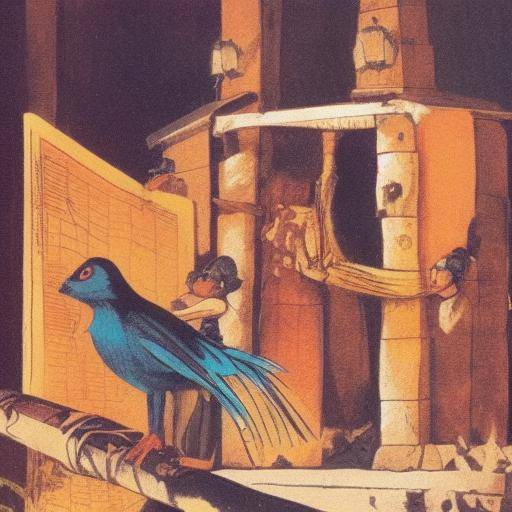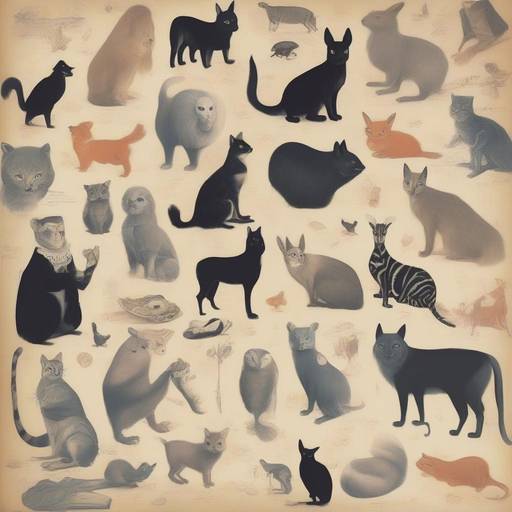
Superstitions have been part of humanity for centuries, influencing our beliefs, behaviors and perceptions. In many cases, these superstitions are closely linked to health and disease, impacting the way people face health-related challenges. In this article, we will explore superstitions related to health and disease, their origin, evolution, impact on contemporary societies and their relationship with medicine.
Introduction
Have you ever touched wood to keep the bad luck away or avoided going under a ladder for fear of bad fortune? These actions, often considered superstitions, may seem harmless, but illustrate how our beliefs can influence our actions. When it comes to health and disease, superstitions can have a significant impact on how people approach their well-being. In this article, we will explore superstitions related to health and disease, its historical origin, its impact on the current society and its relationship with modern medicine.
History and Background
Superstitions related to health and disease have deep roots in the history of humanity. From ancient healing practices to disease protection rituals, superstitions have played a crucial role in how people perceive and manage their well-being.
Origins and EvolutionSuperstitions around health and disease date back to ancient times, when communities strongly depended on traditional medicine and mystical interpretations to deal with diseases. Belief in protective amulets, purification rituals and the influence of astros on health are examples of how superstitions intertwined with everyday life and health concerns.
Significant developmentsThroughout history, various cultures have developed their own superstitions around health and disease, creating a vast repertoire of beliefs and practices around the world. The integration of these superstitions into traditions, religions and rituals has enlarged their influence on the perception of health and disease.
Anecdotes and Relevant CasesHistorical and anecdotes related to the influence of superstitions on health, such as the use of ritual objects to mitigate diseases or purification practices in different cultures, illustrate the deep connection between superstition and health practices throughout history.
Deep analysis
Current Benefits, Challenges and TrendsDespite the advance of modern medicine, superstitions continue to play a significant role in health and disease. While some superstitions may offer emotional comfort or a sense of control, they may also hinder the search for adequate medical care. Current trends show a growing interest in understanding how superstitions affect health care decisions and how health professionals can effectively address these beliefs.
Perspectives and ViewsWithin the medical and academic community, there is a continuous debate on how to address superstitions in the context of health and disease. Some argue that it is crucial to respect individual beliefs, while others advocate greater education and awareness to counter superstitious practices that may put health at risk.
Complex ExplanationsThe academic study of superstitions in relation to health and disease implies a profound understanding of the cultural, social and psychological factors that influence these beliefs. The interdisciplinary nature of these issues requires a holistic approach to fully understand its impact on society.
Examina Abundante
Applications, Case Studies and Best PracticesThe incorporation of understanding of superstitions into medical care can improve communication between health providers and patients, promoting more empathic and patient-centered care. Studying specific cases in which superstitions have influenced treatment decisions can shed light on effective strategies to address these beliefs without undermining patient confidence.
Vision of Experts and IndustryThe vision of experts in public health, psychology and anthropology, among other related fields, is fundamental to understanding the complexities of superstitions in relation to health and disease. Integration of these perspectives can inform intervention strategies and public health policies that respect cultural diversity and promote evidence-based health care.
Comparative analysis
By comparing superstitions, health and disease, it is possible to explore the similarities, differences and possible synergies between these issues.
Comparison and Contrast
The similarities and differences between superstitions, health and disease in different cultures and contexts offer a diverse view of how these ideas intertwine with health practices. Understanding these contrasts can enrich the global perspective on health and disease.
Practical Tips and Accessible Recommendations
Practical TipsFor those who face the influence of superstitions on their health, it is essential to provide practical advice on how to effectively communicate with health care providers, seek reliable information and maintain a balance between personal beliefs and evidence-based medical practices.
Step by Step GuidesProviding step-by-step guides to address health and disease-related superstitions can help people understand and face these beliefs constructively, promoting informed decisions about their well-being.
Sector Perspectives and Expert Reviews
Future Trends and PredictionsThe panorama of superstitions related to health and disease is dynamic and subject to change. Exploring emerging trends and predicting how these beliefs can evolve in the future is crucial for adapting intervention strategies and health policies that effectively address related concerns.
Conclusion
In our exploration of superstitions related to health and disease, we have discovered a complex network of beliefs, practices and their impact on contemporary society. While these superstitions can offer comfort and control, they also present challenges for health professionals and health care policies. By fully understanding these influences on our well-being, we can foster more inclusive, respectful and evidence-based health care that reflects the diversity of beliefs in our communities.
FAQ
What is the origin of health-related superstitions?
Health-related superstitions have their roots in ancestral practices of healers, protective rituals and the integration of mystical beliefs in traditional medicine.
How do superstitions affect treatment and health care decisions?
Superstitions may influence treatment decisions by promoting unsubstantiated practices in medical evidence or by generating mistrust towards conventional care.
How do health professionals address superstitions in medical care?
Health professionals must maintain a balance between respecting individual beliefs and promoting evidence-based practices, seeking empathic communication strategies and education.
Are there superstitions that have been somehow integrated into modern medicine?
Some traditional practices, such as the use of certain herbs or purification rituals, have been adopted or adapted by modern medicine through phytotherapy and complementary therapies.
How can people distinguish between superstitions and substantiated medical practices?
Education, the search for reliable information and open dialogue with health professionals are fundamental to discern between superstitions and evidence-based medical practices, promoting informed and healthy decisions.
What is the role of education in mitigating health-related superstitions?
Education plays a crucial role in mitigating superstitions by promoting scientific knowledge, fostering critical thinking and raising awareness of the importance of evidence-based health care.
In short, health and disease-related superstitions have influenced for centuries the way people perceive and address their well-being. From its historical roots to its impact on contemporary society, these beliefs offer a fertile ground for reflection, dialogue and action. By understanding the intersection of superstitions with health and disease, we can empower people, promote inclusive medical care and support health policies that reflect the diversity of beliefs in our communities.



















